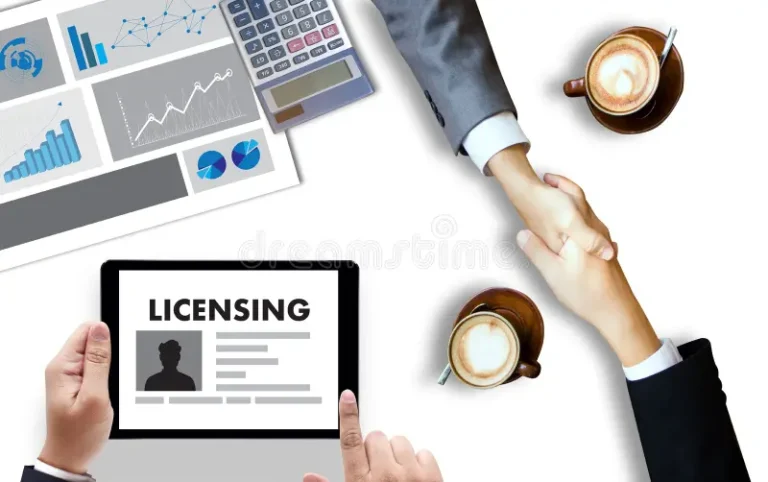Starting a business can be an exciting venture, but it’s not without its complexities. One of the most crucial, yet often overlooked, aspects of setting up a business is understanding the legal requirements that come with it. Among these, business licenses play a pivotal role. Business licenses are official permits that allow a company to legally operate within a specific industry, region, or jurisdiction. They vary widely depending on the nature of the business, the location, and other factors. This beginner’s guide delves into the different types of business licenses, their importance, and how top companies navigate this often cumbersome process to ensure smooth operations and long-term success.
What Are Business Licenses?
A business license is a legal authorization granted by a local, state, or federal government to operate a business. It signifies that the company has complied with the specific regulations and requirements set forth by the jurisdiction in which it operates. Without the appropriate licenses, a business could face fines, penalties, or even closure.
Business licenses are often industry-specific. For instance, a restaurant will need a different set of licenses than a software development firm. The need for a license is generally linked to two main objectives: public safety and regulatory compliance. Businesses that deal with food, alcohol, healthcare, and finance are often subject to more stringent licensing requirements due to the direct impact their services have on the public.
Why Business Licenses Matter
While obtaining a business license might seem like a bureaucratic necessity, it serves multiple important purposes.
-
Legality and Compliance: First and foremost, business licenses ensure that a company is operating legally. Operating without the proper licenses can result in hefty fines, legal trouble, or even the closure of the business.
-
Industry Regulations: Business licenses are designed to ensure that companies meet the industry standards required for safety and quality. For example, in the food industry, licenses help ensure proper health and hygiene standards are followed.
-
Building Trust: For businesses aiming to attract clients, customers, or investors, demonstrating that the company is fully licensed can significantly boost credibility and trust. It tells customers that the business adheres to regulatory frameworks and prioritizes transparency.
-
Access to Contracts and Opportunities: Some contracts or funding opportunities require businesses to hold specific licenses. In sectors like construction, healthcare, or finance, licenses are often prerequisites for bidding on projects or securing certain types of funding.
Key Types of Business Licenses
The exact licenses a business will need depend on the industry, location, and even the structure of the company. However, there are several key types of business licenses that top companies often rely on, which provide a broad overview of the various possibilities.
1. General Business License
A general business license is typically required for all companies to operate legally within a city or county. This license ensures that the business has registered with the local authorities and that the company has paid the necessary fees. This is often the most basic form of licensing and is applicable to nearly all businesses.
2. Professional and Occupational Licenses
Certain professions require specialized licenses to ensure that individuals have the necessary qualifications to offer their services. Professions that commonly require such licenses include doctors, lawyers, accountants, and architects. These licenses are issued by the relevant professional or regulatory bodies, ensuring that businesses in these sectors operate under ethical guidelines and maintain a high standard of service.
For instance, top companies in the healthcare industry (such as hospitals and clinics) need professional licenses to operate their medical facilities. Similarly, law firms must be licensed by the bar association to offer legal services. Such specialized licenses ensure that companies are staffed by qualified professionals who are subject to industry standards and ethical codes.
3. Health and Safety Licenses
Businesses in sectors such as food service, construction, or healthcare are subject to rigorous health and safety regulations. In these industries, businesses must obtain specific health and safety licenses to ensure they comply with local and national laws regarding hygiene, safety standards, and employee protection.
Top companies in food and beverage, for example, typically need health permits from local health departments. Restaurants must pass inspections to ensure cleanliness, proper food storage, and preparation practices. Similarly, construction firms must adhere to building codes and worker safety regulations, often requiring safety certifications.
4. Sales Tax License (Seller’s Permit)
A sales tax license, or seller’s permit, is required for any business that sells taxable goods or services. This license allows companies to collect sales tax from customers, which they must then remit to the appropriate tax authorities. Businesses in retail, e-commerce, and other sales-driven industries need this license to operate legally and maintain tax compliance.
Top retail companies and online businesses, like Amazon or local clothing stores, need a sales tax license to collect taxes on goods sold to consumers. Without this license, the business would not be authorized to collect or remit taxes on transactions, leading to legal and financial consequences.
5. Federal and State Licenses
Some industries, particularly those that operate on a national scale or deal with sensitive materials, are subject to federal and state-level licensing. These businesses often need licenses from federal agencies, such as the Environmental Protection Agency (EPA) for businesses dealing with hazardous materials or the Federal Communications Commission (FCC) for companies in telecommunications.
Similarly, businesses that operate in regulated industries such as finance, healthcare, or insurance often require state-level licenses. For example, insurance agencies and brokerage firms must obtain licenses from the state insurance department in each state where they plan to operate.
6. Import/Export Licenses
For companies involved in international trade, an import/export license is necessary. This type of license ensures that businesses comply with international trade regulations, tariffs, and restrictions. Companies in industries like manufacturing, retail, and agriculture that import or export goods must secure these licenses.
Large multinational corporations, such as those in the automotive or technology industries, often require such licenses to operate in global markets. This license helps streamline the customs process, ensuring goods are legally imported or exported without violating trade laws.
7. Zoning Permits
In addition to the business license itself, certain businesses must obtain zoning permits to ensure their business activities comply with local zoning laws. Zoning laws regulate where certain types of businesses can operate, such as whether a retail shop can be located in a residential neighborhood or whether a restaurant can set up in a commercial district.
For companies that want to open a physical location, especially in industries like retail, hospitality, or manufacturing, a zoning permit is crucial. It prevents businesses from running afoul of municipal regulations and ensures that the operation of the business is in harmony with the surrounding community.
How Top Companies Navigate Business Licenses
Top companies, especially those operating on a global scale, understand the importance of business licenses and are proactive in ensuring that they meet all necessary legal requirements. Here are some of the ways these companies streamline the process:
-
Leverage Technology and Automation: Many large businesses invest in technology to automate and streamline the license management process. Digital platforms help companies track license renewal dates, manage compliance, and avoid unnecessary penalties.
-
Consult Legal Experts: As businesses expand into new markets, they often seek the help of legal experts who specialize in regulatory compliance and licensing. This ensures they obtain the correct licenses for each jurisdiction.
-
Ongoing Compliance Monitoring: Businesses in regulated industries often establish internal compliance teams that regularly monitor and update licenses as laws and regulations evolve. This proactive approach ensures that the company remains in good standing and avoids costly mistakes.
Conclusion
Understanding and navigating the world of business licenses is an essential part of running a successful company. From general business licenses to specialized permits in industries like healthcare or finance, the legalities of doing business must be managed with care and attention to detail. By staying informed about the types of licenses needed and leveraging technology to streamline compliance, businesses can avoid costly pitfalls and focus on their long-term goals. For top companies, business licenses are not merely a formality but a foundational element of operational strategy that facilitates growth, builds trust, and ensures sustainability in an increasingly complex business world.

